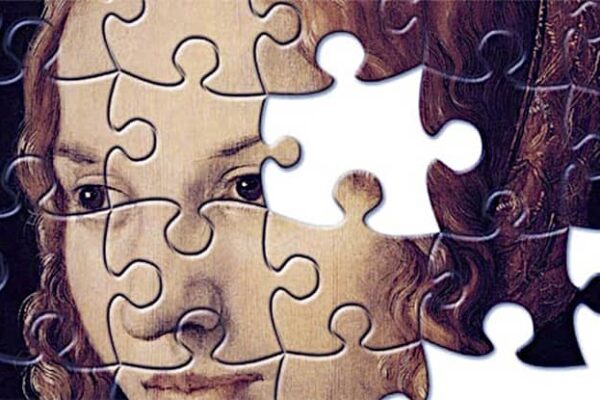Every day, without even noticing it, we engage in a dialogue with the objects around us. An ordinary teapot in the kitchen, a worn-out carpet in the living room, or a gleaming multicooker—all these items not only serve utilitarian functions but also subtly shape our habits, influence our mood, and even reflect deep-seated traits of […]
Sound Habits: What Your Headphone Choice Says About You
Headphones have long ceased to be just an accessory for listening to music—they have become an integral part of daily life, a kind of “sonic extension” of one’s personality. We wear them on the subway, during a run, at the office, and even at home, creating our own audio space in a noisy world.
Western Psychotherapy vs. Eastern Wisdom: Where and How to Heal the Soul
In the modern world, where the boundaries between cultures are becoming increasingly transparent and the demand for emotional well-being is growing, psychology is no longer a monolithic science with a single approach. On the contrary, it reflects the diversity of human experience, offering fundamentally different methods of healing—depending on where and by whom these methods […]
Perfectionism: The Paradox of Endless Self-Dissatisfaction
Perfectionism is not just a desire to do everything well, but an obsessive need to bring any task to flawless completion, accompanied by harsh self-criticism. At first glance, this quality seems like an advantage: is it bad to want a perfect result? But the paradox is that the closer a perfectionist gets to their goal, […]
Asperger’s Syndrome: Complexities, Stereotypes and Reality
Asperger’s syndrome is one of the conditions on the autism spectrum, characterized by particularities in social interaction, communication, and perception of the world. Unlike other forms of autism, it is often accompanied by preserved or even high intelligence, as well as the absence of speech development delays, which makes it difficult to recognize. People with […]
Genius or Labor? Psychology of Early Development
From the very moment a child is born, parents begin to wonder: what matters more in their development—innate abilities or hard work? The myth of “genius,” which is supposedly inborn, has become deeply ingrained in popular consciousness. We admire young musicians, chess players, and mathematicians, assuming their success is solely the result of natural talent. […]
Gas oven vs. electric: what your kitchen says about your personality
Kitchen is not just a place where food is prepared. It is the heart of the home, a space that can reveal much more about your character than it might seem at first glance. The interior, appliances, even the little details in how the space is organized—all of this, seemingly unintentionally, expresses our preferences, habits, […]
Compulsive overeating – psychological causes and working methods of struggle
Compulsive Overeating is not just occasional episodes of “overindulgence,” but a serious eating disorder in which a person regularly experiences uncontrollable binge-eating episodes accompanied by feelings of shame and helplessness. Unlike situational overeating (for example, at a holiday table), compulsive overeating occurs independently of actual hunger and most often serves as a way to suppress stress, […]
How do speech therapy problems reduce a child’s self-esteem?
Speech is not just a tool for communication but the foundation upon which a child’s self-esteem is built. From the first years of life, a child learns about the world through interaction with others, and if their words “stumble,” falter, or sound different from those of their peers, it inevitably affects their self-perception.
Life Without Shackles: How Psychology Helps to Overcome Addiction
Addiction is not just a bad habit that can be overcome by willpower. It is a complex psychophysiological mechanism that entangles a person in invisible but strong shackles. According to the WHO, every third person has encountered some form of addiction at least once in their life—whether it’s alcohol, drugs, gambling, or even compulsive social media […]
Senile Dementia: When the Brain Refuses to Age with Dignity
Senile dementia is not just forgetfulness or the quirks of old age, but a serious cognitive impairment in which the brain gradually loses its ability to think, remember, and even recognize loved ones. In medicine, this condition is often associated with dementia, Alzheimer’s disease, or the consequences of chronic illnesses, but in society, it is […]
Little Feet, Big Emotions: How Shoes Affect a Child’s Psyche
Every parent knows how important it is to choose comfortable shoes for their child—after all, the health of little feet depends on it. But few people think about how shoes affect not only the formation of the foot but also the emotional state, behavior, and even the socialization of the child. Physical discomfort from tight […]
The Zeigarnik Effect: Why Unfinished Business Haunts Us
The Zeigarnik effect is not just an intriguing psychological phenomenon, but a powerful mechanism that daily influences our attention, motivation, and even emotional state. As research by Bluma Zeigarnik and subsequent work in cognitive psychology has shown, our brains are wired in such a way that unfinished tasks create a unique tension, compelling us to […]
Lateral Thinking – The Art of Seeing What’s Hidden from Others
Imagine that all people are walking along the same path—logical, predictable, trodden by thousands of feet. Now imagine someone who turns aside, pushes through the thickets, and discovers not just a new path but an entirely unexplored world. This is the essence of lateral thinking—the ability to step beyond familiar patterns, see what is hidden […]
Psychasthenia: The Disease of Perfectionists and Anxious Geniuses
Psychasthenia is a specific neurotic disorder in which a person becomes trapped in their own thinking: they are plagued by obsessive doubts, chronic anxiety, and exhausting perfectionism. Unlike ordinary anxiety, which comes and goes, psychasthenia creates a constant background of inner tension, where every decision is made with difficulty, and every mistake is experienced as […]














